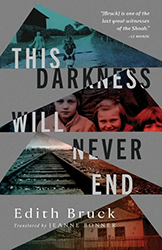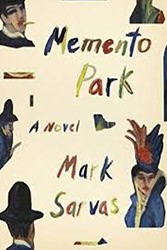In 1944, when Nazis forced twelve-year old Ditke and her family out of their home in a Hungarian village, her mother cried out about the dough she had left rising in big wooden bowls. In this intense 112-page novel based on Edith Bruck’s own life, that bread comes to symbolize the trauma of a childhood lost and the struggles of a young refugee to create a new life for herself after the war. Fierce and restless, Ditke determines to live independently, and to dedicate herself to bearing witness through words. Bruck, now ninety-two, laces this story with frank details and the emotional clarity of her own memories.
Where is Ditke to go at age fourteen once she is freed from Dachau, the fourth concentration camp in which she and her beloved sister Judit were placed? Their parents and one of their brothers are dead. On their own, Ditke and Judit return to Hungary, which no longer feels like home. Two of their older sisters, who survived the war in the Budapest ghetto, don’t understand the horrors they have gone through and are not particularly welcoming. Ditke makes her way to Israel, where she reunites with Judit, works in cafes, and writes. She marries to avoid army service and having to carry a gun, and then she gets divorced, joining one dance troupe after another and traveling with them to Athens, Istanbul, Zurich, and Naples. Ditke begins to feel that Italy is a country she might call home. She learns to speak and write in Italian, taking odd jobs, marrying an Italian poet, publishing novels and winning Italian literary awards, and later speaking about the Holocaust to school groups.
In her introduction, Gabriella Romani explains that Bruck chose to write in Italian as a way to relate events that were too painful to revisit in her mother tongue. Romani also notes that Bruck sent a “Letter to God” to Pope Francis, who came to visit her in 2021. The letter — which is appended to the novel — asks how God could remain silent and not save her mother or stop Mengele’s finger from pointing people “to the left, which was fire, or right, which was agony at work-camps, experiments and death from hunger and cold.” Bruck ends this letter by saying that she cannot forgive the evil, but she also can’t bring herself to feel hatred. She wonders if it’s possible to make sense of her own survival. This riveting book, and Bruck’s years spent educating others, tell us that it’s not only possible, but vital.
Sharon Elswit, author of The Jewish Story Finder and a school librarian for forty years in NYC, now resides in San Francisco, where she shares tales aloud in a local JCC preschool and volunteers with 826 Valencia to help students write their own stories and poems.





